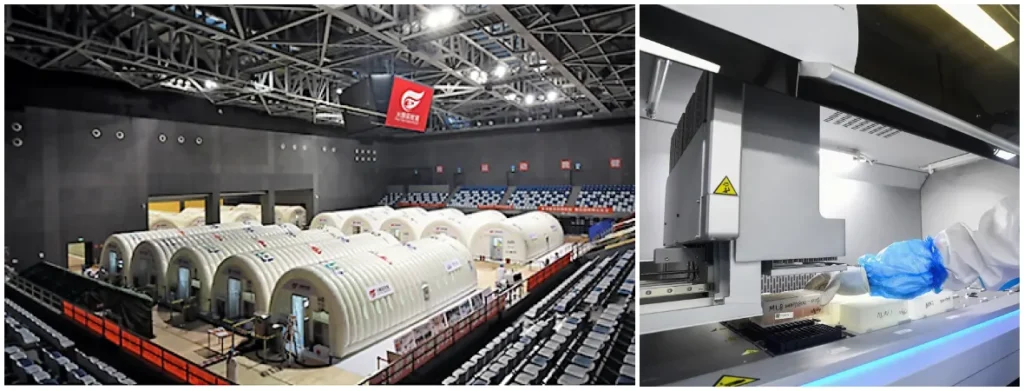China’s rapid global expansion of DNA collection via Fire-Eye labs raises international concerns and sparks fears of a genetic data arms race. China is also aiming to become a global leader in field of Biotechnology by 2035.

In April 2020, when a world struggling with pandemic-induced lockdowns-
A plane touched down in the Serbian capital, Belgrade, carrying a gift from
People’s Republic of China: The Fire-Eye, a portable lab capable of detecting COVID-19 infections from minuscule genetic fragments.
However, this was just the tip of the iceberg.
The Fire-Eye, according to its Chinese inventors, not only excelled at decoding viral genetic material but also human genetic code. Machines within the Fire-Eye claimed the ability to decipher genetic instructions contained within the cells of every individual on Earth.
Serbia soon announced plans to collaborate with a Chinese company to convert the lab into a permanent facility, aiming to catalog the entire genomes of its citizens.
While this collaboration brought excitement to Serbian scientists, it also raised concerns in the West.
The rapid spread of Fire-Eye labs globally during the pandemic, supported by Chinese companies and institutes, has caught the attention of Western intelligence agencies. They view this initiative as part of China’s larger strategy to access highly valuable human DNA data worldwide.
China’s attempt to collect human DNA data has been ongoing for over a decade, involving acquisitions of genetics companies and sophisticated hacking operations. The pandemic provided an unexpected boost, enabling Chinese entities to distribute gene-sequencing machines and form partnerships for genetic research globally.
Fire-Eye labs quickly proliferated across continents, functioning as permanent genetic-testing centers in many countries. The pandemic acted as a catalyst, significantly expanding China’s reach into the global genetic data landscape.
Chinese officials deny any improper acquisition of genetic data. They emphasize the crucial role of Fire-Eye labs in battling the pandemic and their ongoing contribution to screenings for various diseases.
However, concerns persist, especially considering China’s involvement in large-scale genetic data repositories like the China National GeneBank, housing genetic data from millions of individuals worldwide.
The United States government has expressed apprehensions, officially listing companies like BGI, the maker of Fire-Eye labs, as “Chinese military companies.” The U.S. accuses Chinese subsidiaries of BGI of assisting government crackdowns using genetic analysis. BGI, however, claims that all its services and research are for civilian and scientific purposes.
China’s aggressive approach to amass DNA data globally has caused discomfort, raising discussions about the potential misuse of this data.
While genetic-based weapons remain a distant possibility, experts assert that understanding and controlling genes could revolutionize medical advancements, making genetic information a valuable asset in the modern world.
China’s vision is clear: to become the world leader in biotechnology by 2035. Genetic information is deemed the ‘new gold,’ a key element in a scientific revolution that could yield countless new drugs and cures.
However, with such power comes the potential for misuse, prompting the international community to carefully monitor and regulate the collection and utilization of genetic data on a global scale.